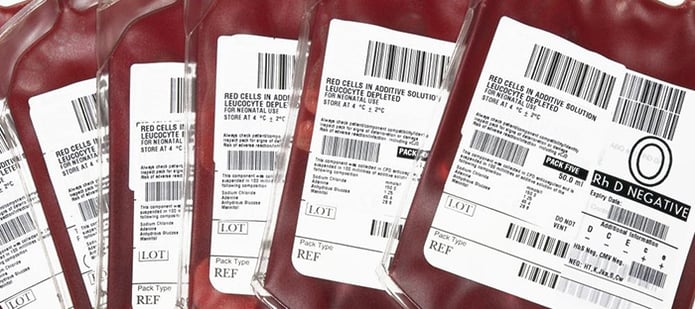
AABB has released new evidence-based clinical practice guidelines for the transfusion of red blood cells. The new guidelines were published in The Journal of the American Medical Association. Previous guidelines had been put into place in 2012. Since then, several large scale studies on red blood cell storage duration and transfusion thresholds have been published which led to the development of the revised guidelines.
Transfusion Thresholds
The new guidelines contain two key recommendations. The first addresses patient hemoglobin threshold values for transfusion of red blood cells. Previously, the hemoglobin threshold value for a red blood cell transfusion was 10 g/dl. Now, a restrictive threshold value of 7 g/dl is recommended for hospitalized, hemodynamically stable adults (including critically ill patients). A restrictive threshold of 8 g/dl is recommended for patients undergoing cardiac or orthopedic surgery.
It is important to note that AABB emphasizes that, in addition to hemoglobin level, the overall clinical context, patient preferences, and alternative therapies should be considered when making transfusion decisions. (Also, these recommendations do not apply to patients with acute coronary syndrome, severe thrombocytopenia, and chronic transfusion–dependent anemia.) Evidence-based transfusion guidelines should help reduce unnecessary transfusions, reducing risk to patients, while still providing therapeutic benefits when transfusions are needed.
Storage
The second recommendation addresses the question of transfusing fresh red blood cell units (less than 10 days old) as opposed to standard issue units that may be any age within their specified storage time frame (typically 42 days). While there has been concern regarding adverse events when “older” red blood cells are transfused, it has been demonstrated that fresher blood does not improve clinical outcomes. Therefore, AABB is recommending that patients (including neonates) receive red blood cells selected at any point within their licensed dating period, rather than limiting transfusion to only fresh units.
Supporting Your Blood Storage
At Helmer Scientific, we are always pleased with developments that positively impact patients. We support your efforts to properly store and monitor your blood products. You can find more information on Helmer products for Transfusion Services and Blood Centers on our website.



